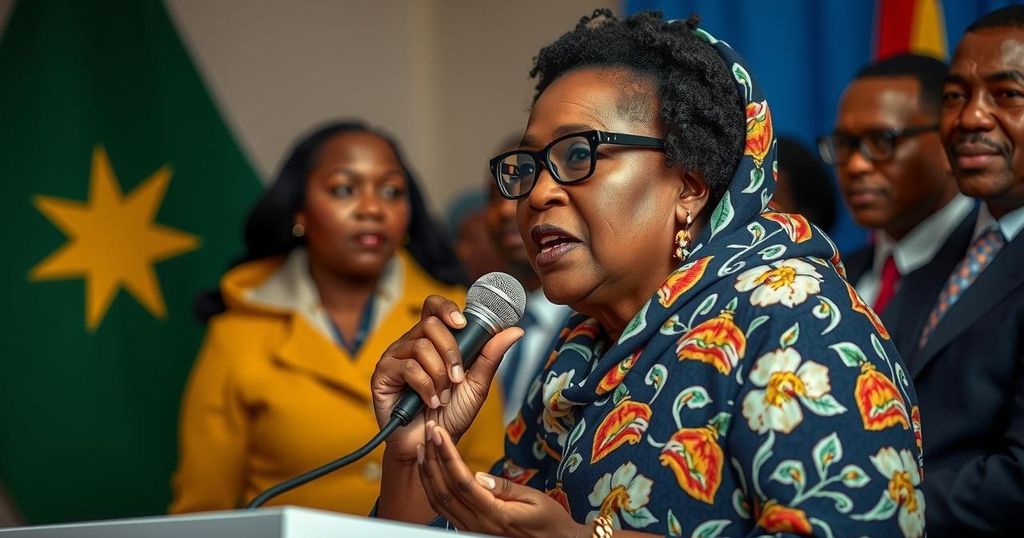Netumbo Nandi-Ndaitwah has been elected as Namibia’s first female president, winning 57% of the vote. Despite her victory, opposition parties contest the election results due to technical issues and irregularities. Nandi-Ndaitwah previously served as vice president and represents the SWAPO party, which has held power since 1990. The election results have stirred significant controversy, leading to claims of voter disenfranchisement and legal challenges.
Netumbo Nandi-Ndaitwah has been officially elected as Namibia’s first female president, receiving 57 percent of the votes, as announced by the country’s electoral commission. This significant victory marks a notable achievement in Namibia’s political landscape and contrasts with forecasts suggesting a possible run-off. Following her election, Nandi-Ndaitwah declared that her victory represented a choice for peace and stability within the nation, affirming the continued dominance of the Southwest Africa People’s Organisation (SWAPO) party since independence in 1990.
Despite her triumph, the election results have faced opposition from rival parties, who have labeled the electoral process as fraught with irregularities. Reports of technical issues, including ballot paper shortages and lengthy queues, led to the extension of voting. The main opposition party, led by Panduleni Itula, received 25.5 percent of the votes and is contesting the legality of the election results, claiming a severe violation of the rule of law. These disputes have raised questions regarding the integrity of the electoral process.
Nandi-Ndaitwah’s political career has spanned decades, beginning with her involvement in the independence movement during the 1970s. She returned to Namibia after studying in the UK and joined parliament following the country’s independence. In her recent tenure as vice president, she succeeded the late President Hage Geingob, further solidifying SWAPO’s long-standing grip on power, despite discontent among younger voters over socioeconomic conditions such as unemployment and inequality.
The election of Netumbo Nandi-Ndaitwah as Namibia’s first female president is a landmark event in the nation’s history and society. The SWAPO party, which has been in power since independence from apartheid South Africa in 1990, has faced criticism in recent years, particularly from the youth due to ongoing issues of unemployment and inequality. The electoral process itself was complicated by several technical difficulties that have raised concerns about the legitimacy of the election, and opposition parties have indicated their intention to legally challenge the results.
In conclusion, the election of Netumbo Nandi-Ndaitwah as Namibia’s first female president marks a pivotal moment in the nation’s political history. However, the fallout from the election reveals significant tensions and challenges, particularly concerning claims of electoral malpractice and rising discontent among the electorate. As Nandi-Ndaitwah assumes leadership amid these challenges, the response to these disputes will be critical in shaping the future of governance in Namibia.
Original Source: www.aljazeera.com







